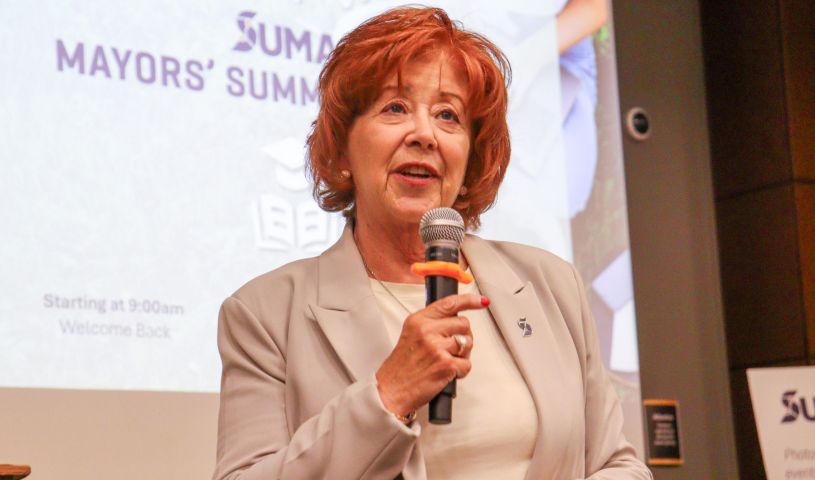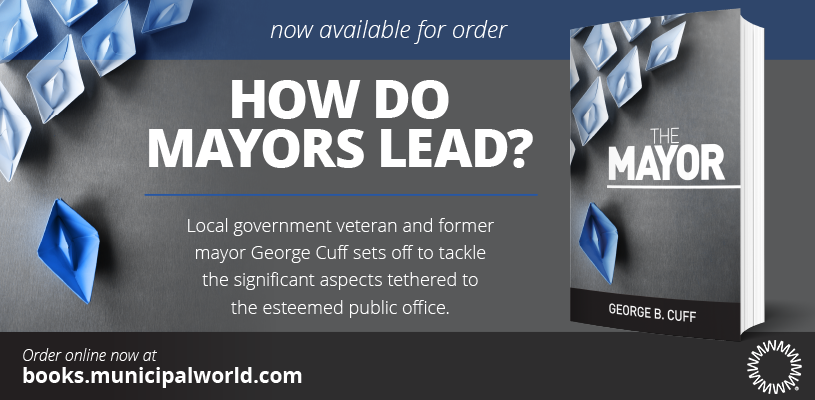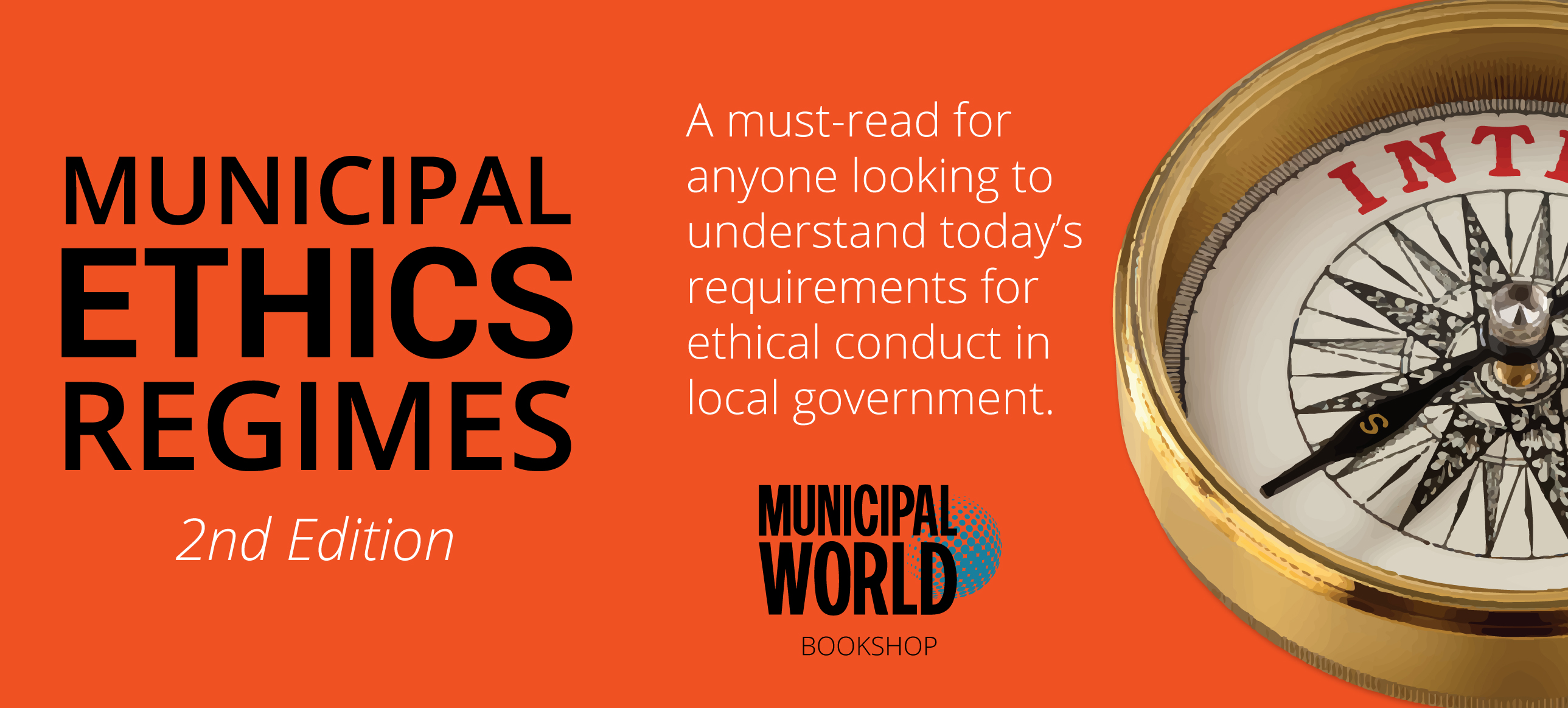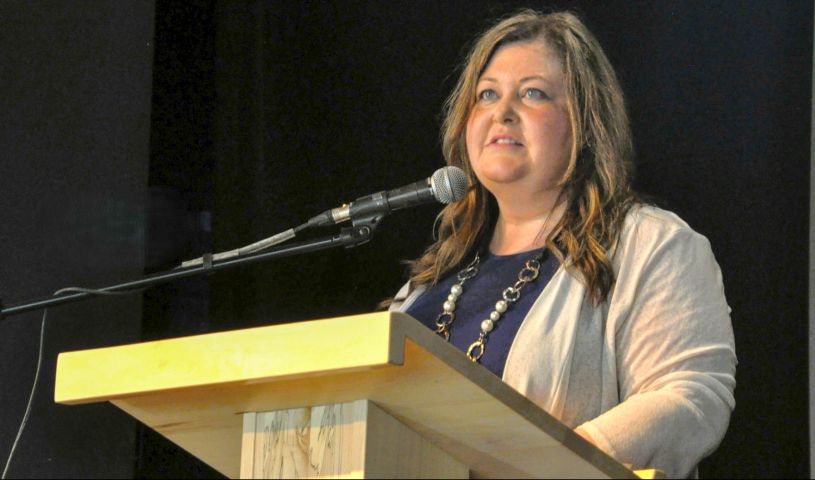Randy Goulden: Reflecting on 24 years of local government influence
 Randy Goulden, a veteran councillor in Yorkton, Sask., and respected municipal leader with decades of service, has been recognized with an honourable mention in Municipal World’s 2025 Women of Influence in Local Government Award. Photo: SUMA
Randy Goulden, a veteran councillor in Yorkton, Sask., and respected municipal leader with decades of service, has been recognized with an honourable mention in Municipal World’s 2025 Women of Influence in Local Government Award. Photo: SUMA
2025 Women of Influence in Local Government Award Honourable Mention
Randy Goulden is a veteran councillor in Yorkton, Sask. She is a respected municipal leader whose decades of service at the local, provincial, and national levels have made her a key voice for Saskatchewan’s urban municipalities.
First elected in 1997, Goulden has been re‑elected in every subsequent municipal election, serving continuously for nearly three decades. She is also currently serving as president of the Saskatchewan Urban Municipalities Association (SUMA), a position she has held since 2022.
In all that time, she never expected her work to be recognized – until she was named one of two honourable mentions for Municipal World’s 2025 Women of Influence in Local Government Award.
“It’s overwhelming. Elected officials that I work with all the time, we don’t do this for awards. We do this because we love our communities,” she said. “I’m actually really proud of the work that I’ve done. But in saying that, any woman in this country can be an influencer. They just have to work together, collaborate. And I would love to talk about that with women across this country.”
A Woman of Influence
Goulden was named as an honourable mention for this year’s award, alongside Christa Lowry, the mayor of Mississippi Mills, Ont. The honouree for 2025 is Lisa Pastro, director of operations for Westbank First Nation, in southern British Columbia.
Goulden is quick to say she never considered herself to be a woman of influence. Despite years of experience working within her community, with SUMA, and in association with the Federation of Canadian Municipalities, Goulden said this new recognition is going to be “a new part of what I am thinking about.”
Her honourable mention, Goulden said, reflects the reality that everybody can be an influencer in their home community. No matter the order of government, Goulden emphasizes that the public have a voice that can be used to make change happen.
“I can speak to the premier or the ministers of whatever ministry we need to speak with, but until they hear from voters, people that live in the communities, those are the true influencers,” Goulden said. “But still, I say thank you for the wonderful, wonderful recognition.”
Role of Women in Local Government
Goulden is in her 24th year on Yorkton council. Her tenure has given her a front‑row seat to the evolution of municipal politics – and the role of women within it.
When Goulden was first elected, she was on a council with two other women. There was a council with six members and a mayor – and three of the members were women. In subsequent years, however, she would find herself the only woman at the council table.
Today the number is up to two – Goulden and Coun. Stephanie Ortynsky. And that is progress Goulden admits to being “very pleased about.”
But she also is quick to note that progress is not only measured by elected representation. There has also been success, she said, reflected in the growing number of women in senior municipal management roles.
“Part of that is women that are elected … but women are also holding senior management positions in their municipal governance area within their communities,” Goulden said. “I see that playing a major role, too, in where we are today.”
Highs and Lows of Public Life
With decades of experience, Goulden has witnessed both the celebratory moments of local government and the more difficult ones. She points to the rise of incivility in public discourse as a growing concern.
SUMA has been working with others who are also trying to talk about changing the unfortunate reality so many elected officials face. Goulden said coping is only one part of the equation. One of the larger questions is how to have people that run for elected positions feel appreciated for the work they do, the time they take, and the decisions they must make.
Decision making, Goulden said, is about researching what comes to the council table, talking to people about it, and making the best possible decision in the moment.
For Goulden, constructive criticism is part of the democratic process, but it must be offered respectfully.
“This is about decision making for your community,” she said. “You may face questions, criticism, and if that’s offered in a good way, that’s not a bad thing. Perhaps if we go down the wrong path and we see evidence to change, that can also be done. But you have to get that criticism in a constructive way.”
Government of Proximity
Despite the challenges, Goulden remains a strong advocate for public service. She unabashedly continues to encourage residents to consider elected office or municipal staff roles. But that opportunity often comes with its own demands.
Goulden laughs about the familiar experience of going to the grocery store for milk and not leaving for two hours. People, she said, “want to talk.” That is especially true after the COVID-related shutdowns of several years ago. But, she added, that isn’t a bad thing.
If she has time to talk, her choice is to always have the conversation. If she must get to something else, she will tell people to call her at a specific time or set up an opportunity to chat over coffee.
But she also emphasizes that listening is not enough – hearing and acting on resident concerns is what matters.
“It’s one thing to listen, but it’s actually another thing to hear what they’re saying and take it to heart,” she said. “We’re the people that residents see in grocery stores. We’re at the hockey rinks, at the concerts, at the plays. We’re everywhere. People have direct access to us and that’s a good thing because they will tell you what they’re thinking and what might be the best thing for the community.”
Growing Responsibilities, Stagnant Revenues
Looking back over her career, Goulden sees a fundamental shift in the responsibilities municipalities are expected to shoulder.
Whether it’s on a provincial level or on a national level, municipalities can get things done, which is something she celebrates. What all local officials find challenging, however, is when municipalities are downloaded new responsibilities but the financial contributions don’t come with it.
She points to issues like mental health and homelessness, which are formally provincial responsibilities but increasingly land on municipal doorsteps.
“It’s happening on our streets. It’s happening in our downtowns. It’s happening in our schools. We have to do something about it, “Goulden said. “Our residents are asking us, and more and more we’re stepping up to the plate. But the finances aren’t there. What we do now has changed but how we pay for it hasn’t. And the other orders of government are going to have to understand that must change.”
Hope for the Future
Despite the daunting challenges, Goulden remains hopeful. Things must change, she said, and councils are increasingly hearing that from their residents. Whether it’s concerns around public health or policing, they don’t just define quality of life, they define safety.
But Goulden said solutions will only come when municipalities, provinces, and the federal government sit down together.
“The only way we’re going to be able to solve those things is if all three orders of government are at the table at the same time,” she said. “Our municipalities can offer solutions, and we want to be part of the solution. We just can’t be the whole solution.” MW
✯ Municipal World Executive and Essentials Plus Members: You might also be interested in the 2024 Local Government Award honourees: Recognizing key figures in local government.
Sean Meyer is digital content editor for Municipal World.
Related resource materials:



